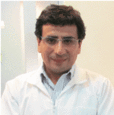What is oral surgery?
Oral surgery is extremely important when functional dental concerns such as keeping your natural teeth, correcting congenital growth issues, controlling serious oral disease and treating significant trauma-related injuries that supersede esthetics require the immediate intervention of oral surgeons, who are dental specialists highly trained that can help you with your overall oral health care.
Who can refer you to oral surgeons?
Usually your primary doctor or any other medical physicians can refer you or suggest seeking the specialized care of an oral surgeon. Most of the time Prosthodontics work closely with oral surgeons in developing orthotics and prosthetic appliances to treat a significant number of functional issues. At Dental Quito Clinic we have not only Oral Surgeons but also Orthodontists, Prosthodontics, and Cosmetic Dentists. We also work with Plastic Surgeons.
What are the areas of expertise of oral surgeons?
Removing disease and impacted teeth using local or general anesthesia, at Dental Quito Clinic in most cases only local anesthesia is used.
Placing dental implants working together with cosmetic or restorative dentists, who are responsible for designing your new and healthy smile. At Dental Quito Clinic we take care of every aspect, starting with careful planning of the best treatment for your particular case, reconstruction of bone in areas requiring it for implant placement when necessary, placement of implants to modification of gum tissue around the implants to produce a more natural, attractive and functional appearance.
Treating facial trauma by repairing minor-to-complex facial skin lacerations, setting fractured jaw and facial bones, reconnecting severed nerves and treating other facial injuries involving the oral tissues, jaws, cheeks, nasal bones, eye sockets and the forehead. At Dental Quito Clinic we can help you with the reconstruction of your overall oral health. However, we can refer you to other surgeons for complex treatments related to facial reconstruction. We work with highly skilled and experienced specialists.
Evaluating pathologic conditions by treating patients with benign cysts and tumors of the mouth and face as well as patients with malignant oral, head and neck cancer and severe infections of the oral cavity, salivary glands, jaws and necks. Our integrated services can address your unique needs.
Alleviating facial pain by diagnosing and treating facial pain disorders including those cause by temporomandibular joint problems. At Dental Quito Clinic our oral surgeons can order imaging studies of the joints and make appropriate referrals to other associated medical specialists or a physical therapist if necessary. When non-surgical treatment is insufficient or there is definite join damage our oral surgeons could suggest necessary surgery.
Performing reconstructive and cosmetic surgery by correcting jaw, facial bone and facial soft tissue problems that result from trauma or the removal of cysts and tumors. These specialized surgery can restore shape and function to the maxillofacial area and often involve using skin, bone, nerves and different tissues from other parts of the body to reconstruct the jaws and face. The main goal is to enhance facial features or address aging concerns.
Performing surgery to correct minor and major skeletal and dental jaw irregularities to improve chewing, speaking and breathing. Oral surgeons can surgically reconstruct and realign the upper and lower jaws into proper dental and facial relationships in order to improve the biting function and facial appearance. Oral surgeons can also correct birth defects of the face and skull such as cleft lip and cleft palate that are congenital. At Dental Quito Clinic our oral surgeons can provide you with surgical consultation and emotional support during the entire treatment.
Providing surgical treatment for obstructive sleep apnea when you are experiencing sleeping disorders. In some severe cases your dentist can refer you to an oral surgeon for a surgical procedure that include: Uvulopalatopharyngoplasty, which shortens and stiffens the soft palate by partially removing the uvula and the edge of the soft palate to correct airway collapses; Genioglossus Advancement, which opens the upper breathing passage by tightening the front tongue tendon, reducing tongue displacement into the throat and Maxillomandibular Advancement, which surgically moves both jaws forward to open the upper airway.
What is the professional training of Oral Surgeons?
Oral Surgeons must graduate from an accredited dental school and be licensed where they are practicing. Oral Surgeons must also have completed four or more additional years of practical training in an accredited hospital-based oral and maxillofacial surgery residency program. Those are the requirements in order to be certified as a member of the American Board of Oral and Maxillofacial Surgery.
Oral surgeon residents train alongside medical residents in general surgery, advanced anesthesia, plastic surgery (reconstructive or bone grafting/tissue grafting), medicine and pathology. An Oral Maxillofacial Surgeon may treat patients in hospitals, clinics, outpatient facilities and surgery centers, as well as in private practice.
Dr. Said Mangui Adum
Senior Oral & Maxillofacial Surgeon at Dental Quito Clinic. Extensive experience in advanced dental care, oral and maxillofacial surgery and dental implantalogy.
E-mail: msaid@dentalquito.com
Website: www.dentalquito.com
Website: www.dentalquitoclinic.com

Post new comment
Please Register or Login to post new comment.